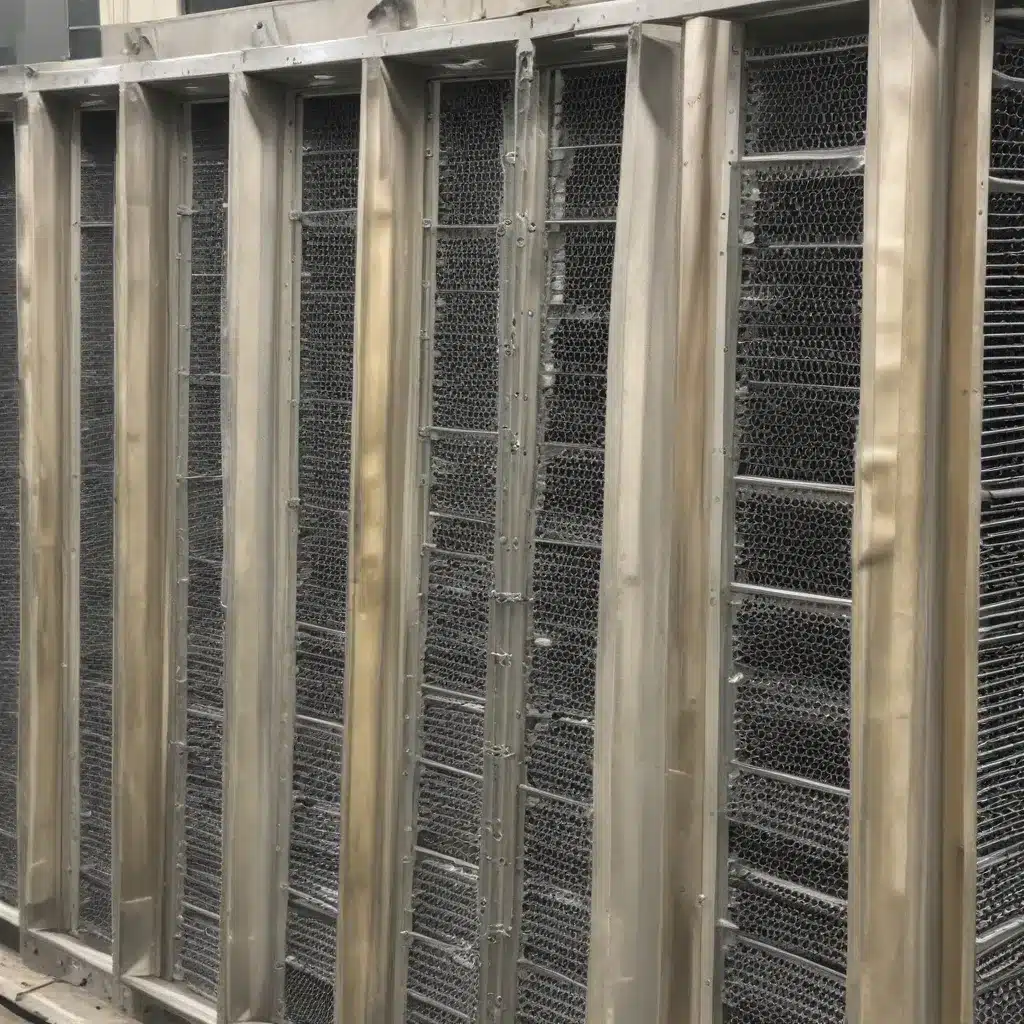
The Evolving Landscape of Air-Cooled Heat Exchangers
In the ever-advancing world of thermal management, air-cooled heat exchangers have become indispensable tools for industries seeking efficient, reliable, and sustainable solutions. As the demand for enhanced performance and energy savings continues to rise, the need for innovative materials and manufacturing processes has become paramount.
At the forefront of this evolution are pioneering companies like https://www.alfalaval.us/products/heat-transfer/heat-exchangers/, whose expertise in heat exchanger design and engineering has propelled the industry forward. By leveraging cutting-edge materials and advanced manufacturing techniques, these innovators are redefining the boundaries of air-cooled heat exchanger durability and reliability.
Unlocking the Power of Advanced Materials
One of the key factors in enhancing the performance and lifespan of air-cooled heat exchangers is the selection of high-quality, durable materials. Mersen, a global leader in industrial solutions, has been at the forefront of developing specialized materials tailored for the unique demands of heat exchanger applications.
Purified Graphite: Mersen’s expertise in the purification of graphite has been instrumental in addressing the critical need for high-purity materials in heat exchanger manufacturing. By meticulously removing impurities through high-temperature heating, Mersen produces graphite with exceptional thermal stability and resistance to oxidation. This purity is essential for components such as heat exchanger housings, fins, and other critical parts, ensuring long-term reliability and consistent performance.
Silicon Carbide (SiC) and Tantalum Carbide (TaC) Coatings: To further bolster the durability of air-cooled heat exchangers, Mersen has developed advanced coating technologies. By applying SiC and TaC coatings to graphite components, the company enhances their resistance to erosion, corrosion, and high-temperature environments. These protective layers extend the lifespan of heat exchanger parts, minimizing the need for frequent replacements and maximizing the overall efficiency of the system.
Innovations in Manufacturing Processes
Alongside advancements in materials, the evolution of manufacturing techniques has also played a pivotal role in improving the performance and reliability of air-cooled heat exchangers. Mersen’s expertise in this area has led to the development of innovative processes that push the boundaries of what’s possible.
Epitaxial Growth: The precise control of epitaxial layers is crucial for tailoring the electrical properties of semiconductors, a critical component in many heat exchanger applications. Mersen’s advanced graphite solutions, such as high-purity graphite susceptors, ensure uniform heating and thermal stability during the epitaxial growth process. This attention to detail translates directly into the production of high-quality, energy-efficient semiconductor devices that are essential for modern heat exchanger systems.
Atomic Layer Deposition (ALD): The ALD process, widely used in semiconductor manufacturing, relies on the exceptional thermal stability and uniformity provided by Mersen’s graphite susceptors. These specialized components ensure consistent film quality and thickness, essential for the fabrication of advanced heat exchanger components that meet the stringent demands of modern thermal management applications.
Silicon Carbide (SiC) Epitaxial Layering: The adoption of SiC in heat exchangers and other thermal management systems has grown exponentially due to its superior electrical and thermal properties. Mersen’s expertise in SiC epitaxial layering techniques has been instrumental in advancing the performance and reliability of SiC-based heat exchanger components. By perfecting the deposition of thin SiC layers on substrate materials, Mersen enables the production of heat exchangers capable of withstanding higher temperatures, operating at higher power densities, and providing enhanced energy efficiency.
Addressing Thermal Management Challenges
As semiconductor devices and other heat-generating components become increasingly powerful and compact, the importance of effective thermal management has reached new heights. Mersen’s innovative approach to this challenge involves leveraging advanced materials and thermal engineering solutions to enhance the durability and reliability of air-cooled heat exchangers.
Thermal Stability and Insulation: Mersen’s portfolio of materials, including porous graphite and high-purity graphite, excels at providing excellent thermal insulation and maintaining temperature uniformity within heat exchanger systems. These specialized components, such as graphite susceptors and rigid carbon insulation, play a crucial role in ensuring that critical heat transfer processes, like epitaxial growth, are carried out with precision and consistency.
Thermal Resistance and Corrosion Protection: The harsh operating environments encountered in many industrial applications can take a toll on heat exchanger components. Mersen’s focus on developing materials with exceptional thermal resistance and corrosion protection, such as SiC-coated and TaC-coated graphite, ensures that air-cooled heat exchangers maintain their structural integrity and performance over extended periods, even in the most demanding conditions.
Embracing the Future with Sustainability
As the world becomes increasingly conscious of environmental impact, the heat exchanger industry has also embraced the pursuit of sustainable solutions. Mersen’s innovations are not only advancing the technical capabilities of air-cooled heat exchangers but also contributing to a more eco-friendly future.
The development of SmartSiC™ technology, a collaborative effort between Mersen and Soitec, exemplifies this commitment to sustainability. This groundbreaking substrate technology combines a thin layer of monocrystalline SiC on a polycrystalline SiC base, resulting in a more efficient and cost-effective production of SiC power components. By enabling the creation of more compact and energy-efficient heat exchanger systems, SmartSiC™ technology is poised to have a significant impact on reducing energy consumption and environmental impact across various industries.
Conclusion: Embracing the Future of Air-Cooled Heat Exchangers
As the world continues to demand more efficient, reliable, and sustainable thermal management solutions, the evolution of air-cooled heat exchangers has become a crucial focus for industry leaders. Through the development of advanced materials, innovative manufacturing processes, and a steadfast commitment to sustainability, companies like Mersen are redefining the boundaries of what’s possible in the world of air-cooled heat exchangers.
By leveraging their expertise and collaborating with industry partners, these pioneers are poised to continue driving the advancement of air-cooled heat exchanger technology, ensuring that it remains a vital component in powering the future of energy-efficient, high-performance industrial and commercial applications. As the demand for cutting-edge thermal management solutions continues to grow, the future of air-cooled heat exchangers has never been brighter.
Visit https://www.aircooledheatexchangers.net/ to explore more insights and solutions from industry experts dedicated to pushing the boundaries of air-cooled heat exchanger technology.

